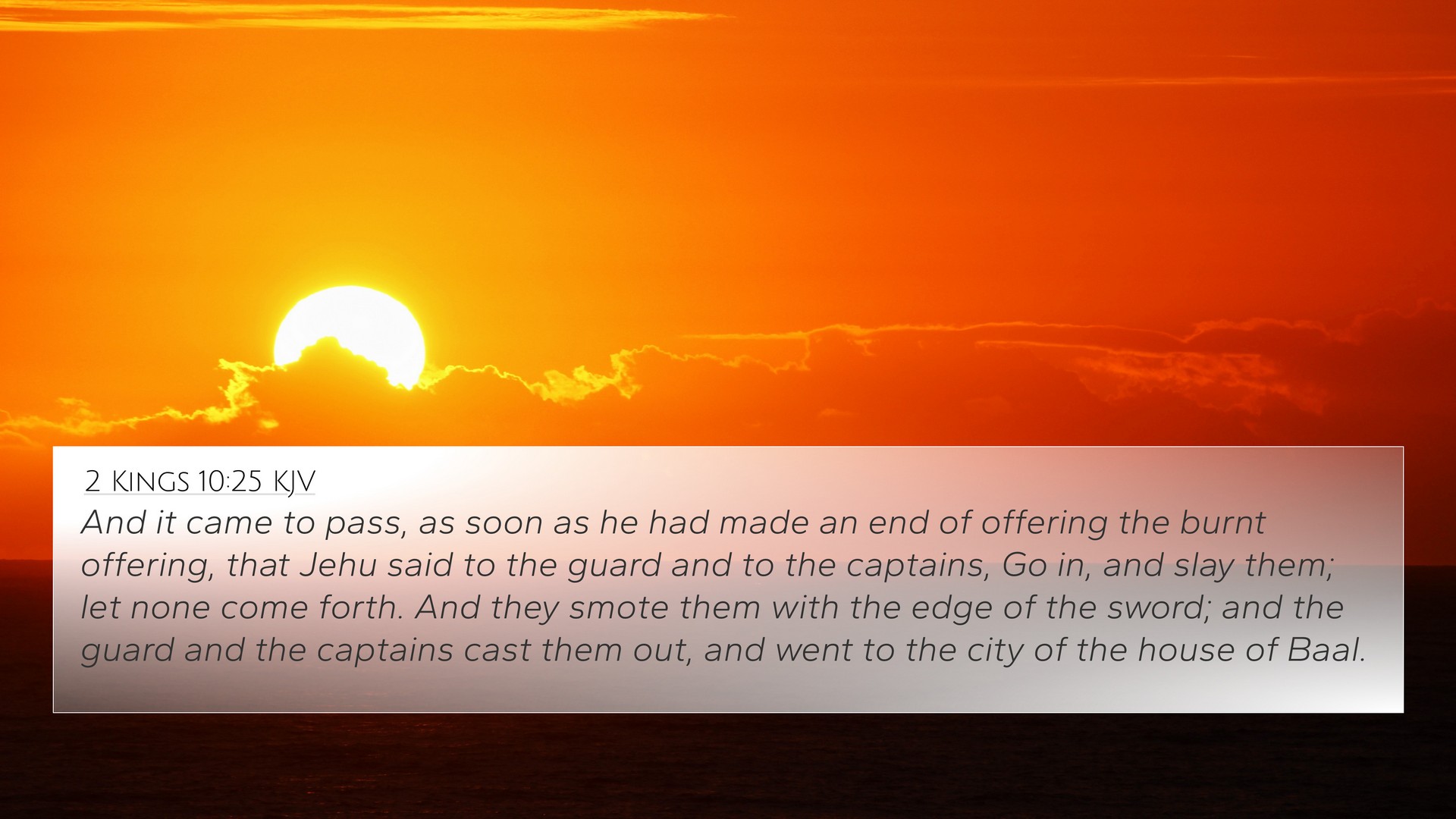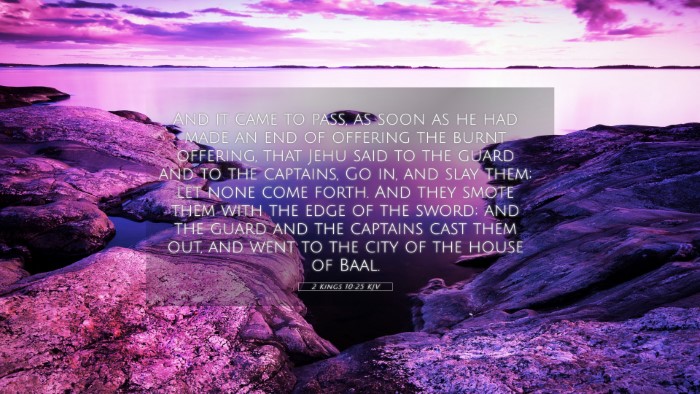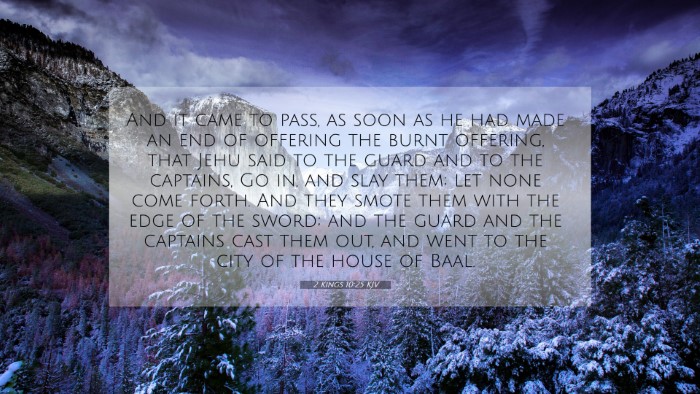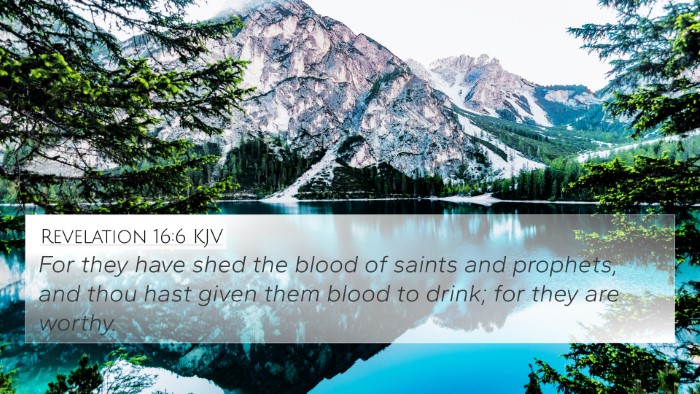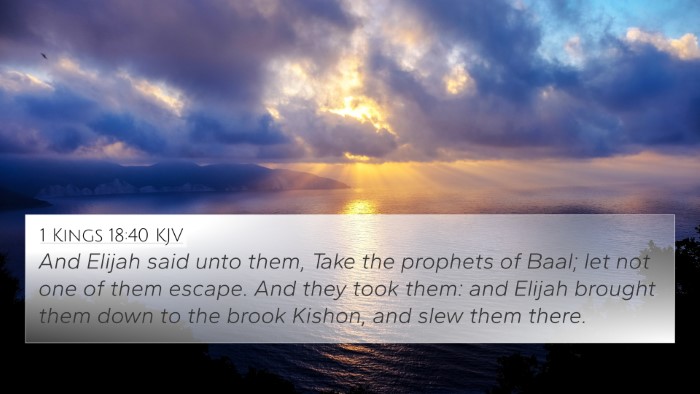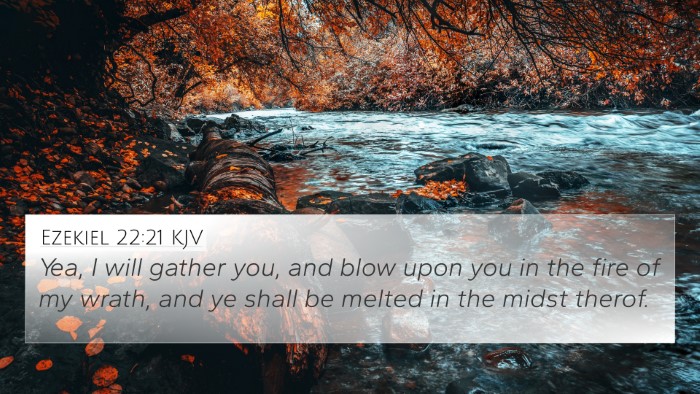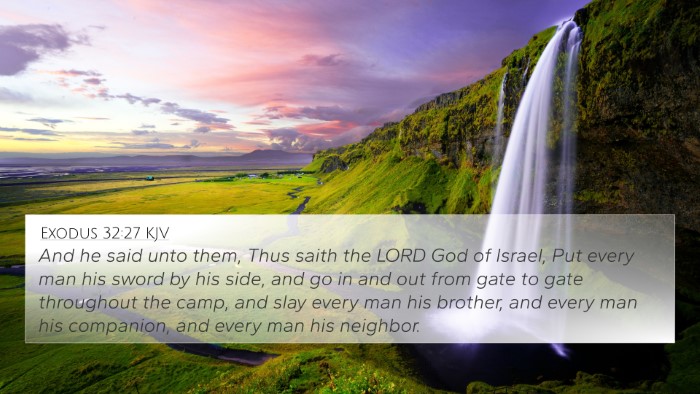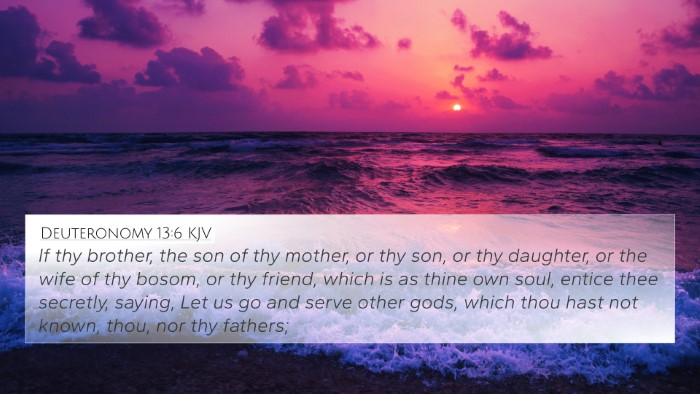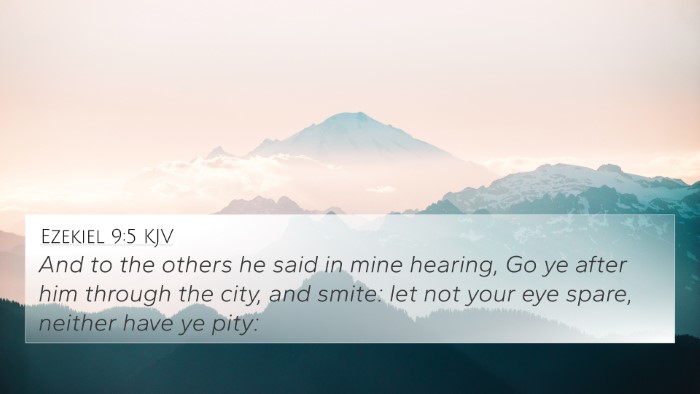Understanding 2 Kings 10:25
2 Kings 10:25 states, "And it came to pass, as soon as he had made an end of offering the burnt offering, that Jehu said to the guard and to the captains, Go in, and slay the priests of Baal; let none come forth. And they smote them with the edge of the sword; and the guards and the captains cast them out, and went to the city of the house of Baal." This verse captures a significant turning point in the narrative of the Israelite kings, where Jehu decisively eliminates idol worship, specifically targeting the priests of Baal.
The meaning of this verse is deep and intertwined with themes of divine justice, idolatry, and the fulfillment of prophetic judgment. Various commentaries dive into the implications of Jehu's actions and the spiritual state of Israel during this period.
Commentary Insights
-
Matthew Henry:
Henry emphasizes the importance of Jehu's zeal in purging Israel of Baal worship. He interprets Jehu's actions as not merely a political maneuver but as a necessary act for restoring true worship to Yahweh. Henry notes that Jehu's commitment to destroy the idolaters showcases a divine mandate to remove influences that lead God's people away from Him.
-
Albert Barnes:
Barnes adds that Jehu's ruthless execution of Baal's priests is emblematic of God's judgment upon those who lead others into idolatry. He highlights that this action fulfills the prophecy spoken by Elijah regarding Ahab's lineage. Barnes argues that the context of 2 Kings should be viewed through the lens of covenant faithfulness and the consequences of turning away from the Lord.
-
Adam Clarke:
Clarke delves into the historical context of Baal worship in Israel, detailing its origins and the role it played in the societal decline of the nation. According to Clarke, Jehu's actions served a dual purpose: to eradicate a pernicious false religion and to consolidate his power. He remarks on the brutality of the event but understands it as necessary for returning Israel to proper worship of Yahweh.
Thematic Connections
The execution of the priests of Baal by Jehu is rich with thematic connections throughout the Bible. Below, we summarize the inter-Biblical dialogues that can be connected to 2 Kings 10:25:
- Exodus 22:20: "He who sacrifices to any god, except to the Lord only, he shall be utterly destroyed." This verse establishes the seriousness of idolatry in the Israelite covenant.
- Deuteronomy 13:6-9: "If your brother, the son of your mother, or your son, or your daughter, or the wife of your bosom, or your friend who is as your own soul, entices you secretly, saying, 'Let us go and serve other gods,' ... you shall surely kill him." This underscores the gravity of leading others into idolatry.
- 1 Kings 18:40: "And Elijah said to them, 'Seize the prophets of Baal!' Do not let one of them escape." This connects the prophetic actions against Baal worship and serves as a precursor to Jehu's actions.
- 2 Kings 9:7: "And you shall strike down the house of Ahab your master, that I may avenge on Jezebel the blood of my servants the prophets..." This verse provides the prophetic background to Jehu's mission.
- Matthew 10:34-36: "Do not think that I came to bring peace on earth. I did not come to bring peace but a sword." This New Testament passage highlights the theme of division that can occur due to loyalty to God over cultural norms.
- Romans 1:25: "Who exchanged the truth of God for the lie, and worshiped and served the creature rather than the Creator..." This verse parallels the idolatrous worship in Israel and emphasizes the need for turning back to God.
- Revelation 21:8: "But the cowardly, unbelieving, abominable, murderers, sexually immoral, sorcerers, idolaters, and all liars shall have their part in the lake which burns with fire and brimstone..." This serves as a stark reminder of the final judgment against idolatry.
Cross-Referencing Biblical Texts
Engaging with 2 Kings 10:25 through cross-referencing provides a multi-faceted understanding of the text. Here are some tools and methods for effective Bible cross-referencing that can deepen one's study:
- Bible Concordance: Utilize a concordance to find all occurrences of key terms like "Baal," "idolatry," and "judgment."
- Bible Cross-Reference Guide: Reference guides often include thematic connections and suggest parallel passages.
- Cumulative Cross-Reference Studies: Explore how Old Testament themes resonate in the New Testament.
- Cross-Reference Bible Study Methods: Engage in thematic studies that trace the evolution of certain themes, such as worship and idolatry.
- Bible Reference Resources: Use a combination of study tools, such as topical Bibles and thematic expository works, to explore related verses.
Conclusion
In summary, 2 Kings 10:25 is a critical verse that exemplifies the struggle between faithfulness to God and the corruption of idolatry. Through understanding the context and connecting it with other Bible verses, one can appreciate the broader narrative of redemption and judgment throughout Scripture. By engaging in cross-referencing and thematic studies, readers can deepen their understanding of this passage and its implications for faith and practice today.
